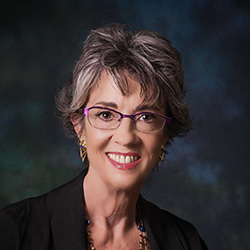By Robyn Stone
Most of us don’t follow through on New Year’s resolutions. That makes Robyn Stone even prouder of one resolution that came to fruition five years after it was made.
It’s traditional to make resolutions at the beginning of each new year, identifying actions we plan to take over the next 12 months to improve our lives or the lives of the people we care about. We decide to exercise more or eat less, spend more time with the people we love, worry less and dream more, work harder (or work less), read more, or watch less television.
The list goes on and on, as you well know.
Despite the energy we put into making resolutions, most are doomed to failure. According to research from Ohio State University, a quarter of us give up on our New Year’s aspirations by the end of the first week of January, and almost half (43%) abandon our best intentions by the end of the month.
This propensity to think big but not follow through is a constant challenge for organizations and individuals alike. Implementing big ideas is hard. It takes work, determination, and patience—mostly patience.
That’s why, during this first month of 2025, I am particularly thrilled to share that a resolution LeadingAge and the LeadingAge LTSS Center @UMass Boston made five years ago is coming to fruition.
A few New Year’s Days have passed since we resolved to take action to advance new and high-potential talent into leadership roles in aging services. We believed it would benefit our field.
I am so pleased that we stayed the course, did the hard work, and are now poised to launch the LeadingAge Leadership Fellowship pilot program this June.
A group of up to 10 fellows will participate in the Leadership Fellowship pilot program during its first year. The fellows, recruited by LeadingAge partner United Negro College Fund (UNCF), will be master’s program graduates or mid-career professionals with experience in nonclinical positions such as finance, human resources, or data analytics.
UNCF will lead the recruitment and promote the positions within its vast network. Fellows will be employed by a group of seven to 10 LeadingAge members, who will provide them with a full-time salary and benefits and support them as they participate in the training and mentorship programs that we will deliver with help from a $250,000 grant from the Next50 Foundation. We aim to ensure the fellows feel welcomed and that we can find ways to use their skills to strengthen our organizations and our field.
Why did this resolution succeed when so many resolutions usually fail? The answer to that question is multifaceted.
We designed for success. With help from UNCF, we are taking a deliberate approach to recruiting fellows and matching them with providers to ensure the best fit. We’re also implementing a cohort model emphasizing collaboration, interaction, and discussion among fellows who will progress together through the program. We’ll be testing this approach, but it promises to help fellows develop professional relationships with one another that will last a lifetime and lead to career success.
We’re educating for the long term. We’ve developed a strong curriculum that will introduce fellows to aging services and prepare them well for the work they will do during the pilot’s first year. Our mentoring component will help fellows think strategically about their futures and take steps to ensure they have long and fulfilling careers in our field. Cultural competence training for CEOs and preceptors will also help to make this program a success.
We’re not in this alone. Over the past five years, we’ve put together a fantastic group of partners who care as much about this program’s success as we do. That includes UNCF, the Erickson School of Aging Studies at the University of Maryland Baltimore County, mentorship and cultural competency expert Nzinga Shaw, LeadingAge provider members, and the LTSS Center. I couldn’t think of a more qualified team to ensure the success of our fellows and our program.
I’m proud and excited that we’ve put together a multifaceted package to help us enhance leadership in our field. Now it’s time to make our next resolution: to ensure that this year’s fellowship cohort is the first of many.
A parting thought: We’re still seeking providers to host fellows in their organizations during the next year. If you’d like to join our team, please contact LTSS Center team members Adrienne Ruffin (aruffin@leadingage.org) or Natasha Bryant (nbryant@leadingage.org).

Robyn I. Stone, DrPH, is senior vice president of research at LeadingAge, and co-director of the LeadingAge LTSS Center @UMass Boston. Her widely published work addresses long-term care policy and quality, chronic care for people with disabilities, the aging services workforce, affordable senior housing, and family caregiving.
